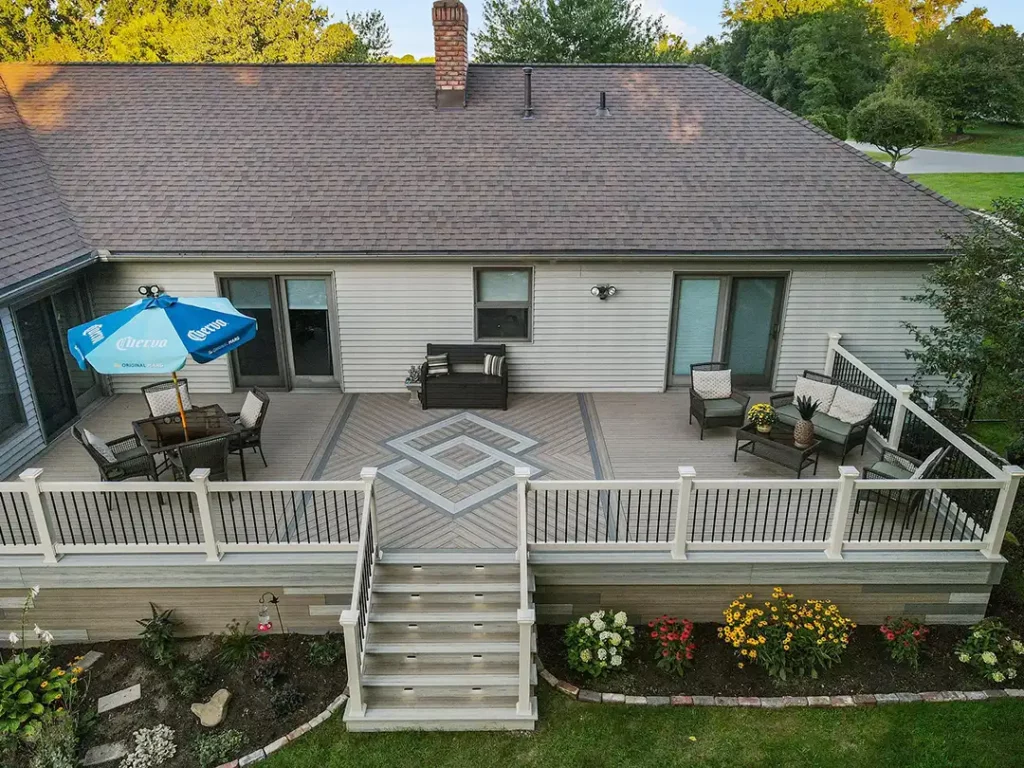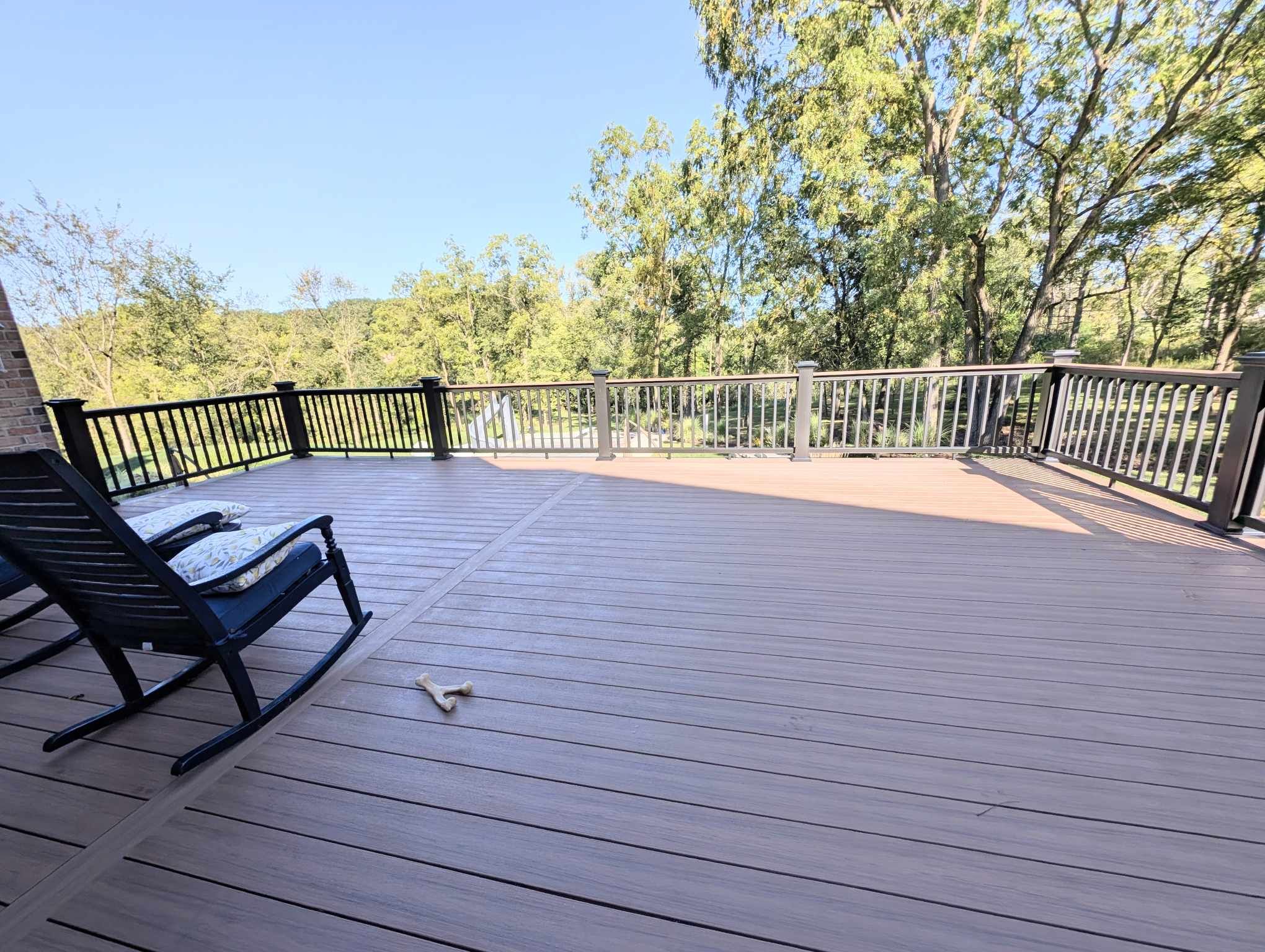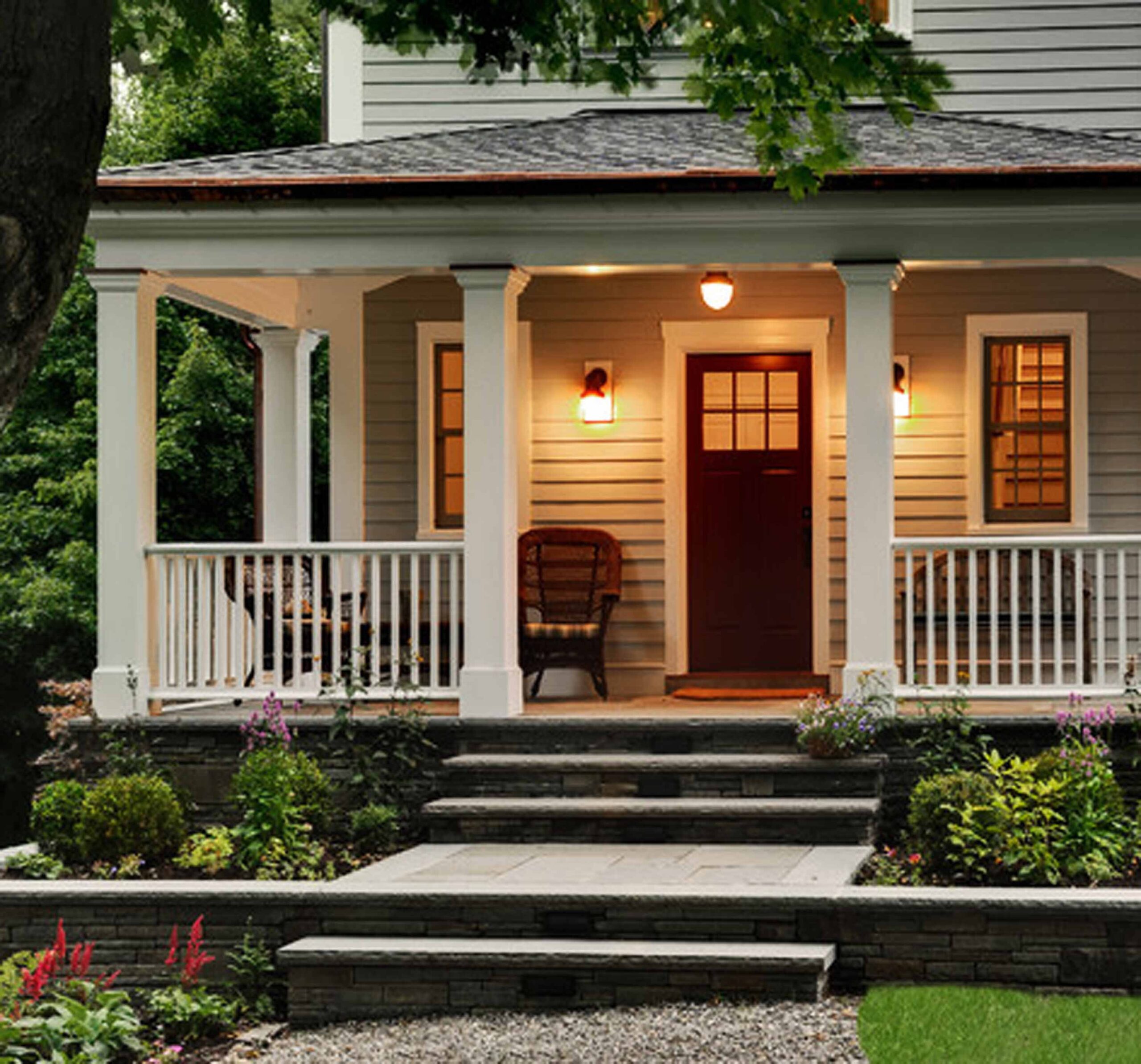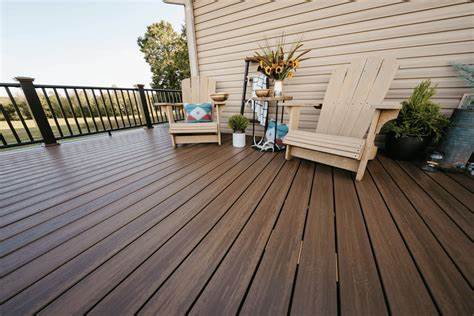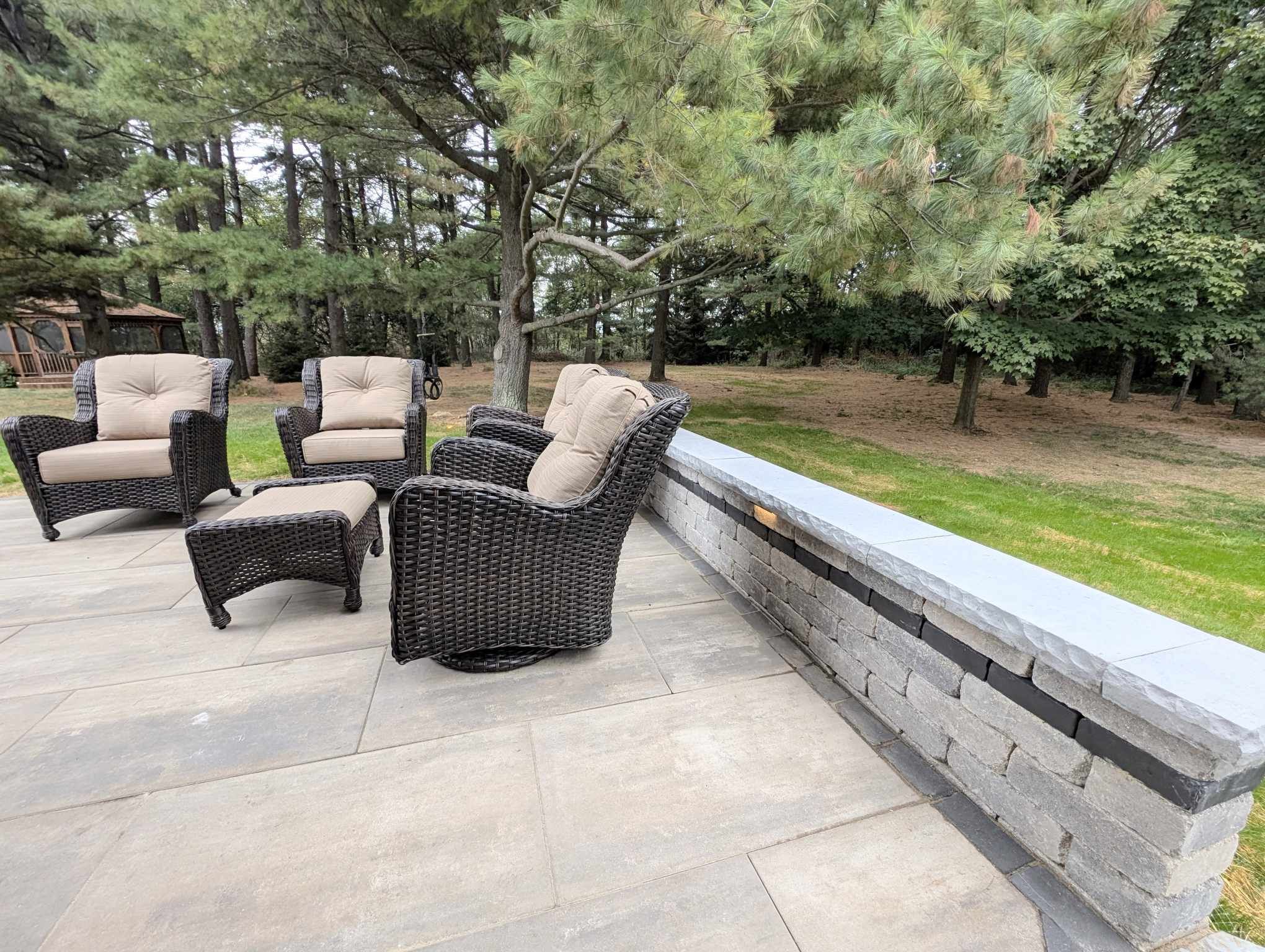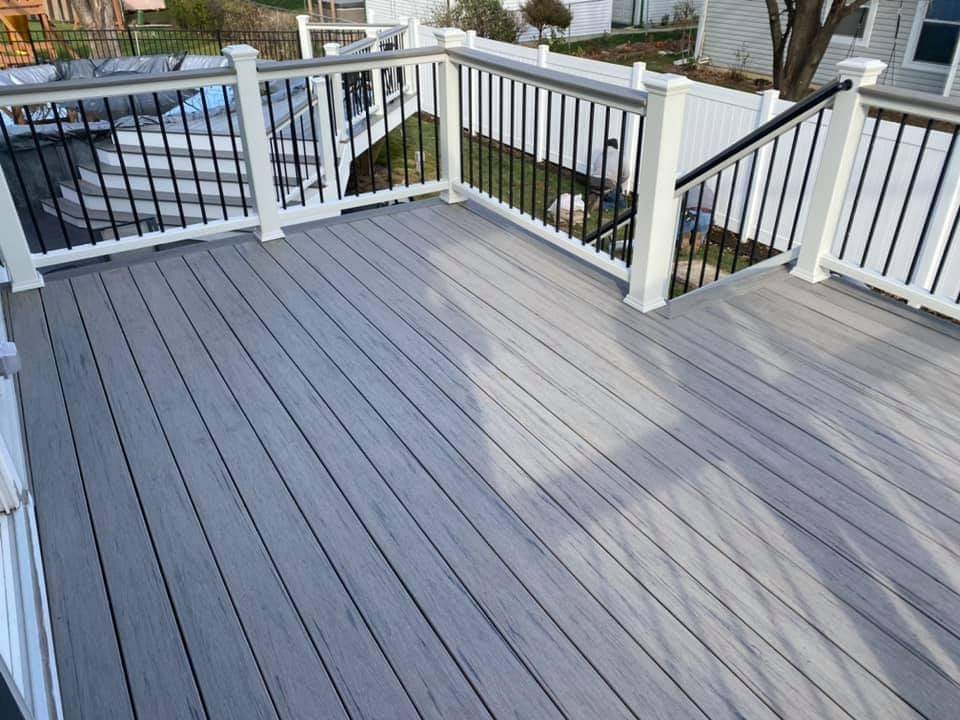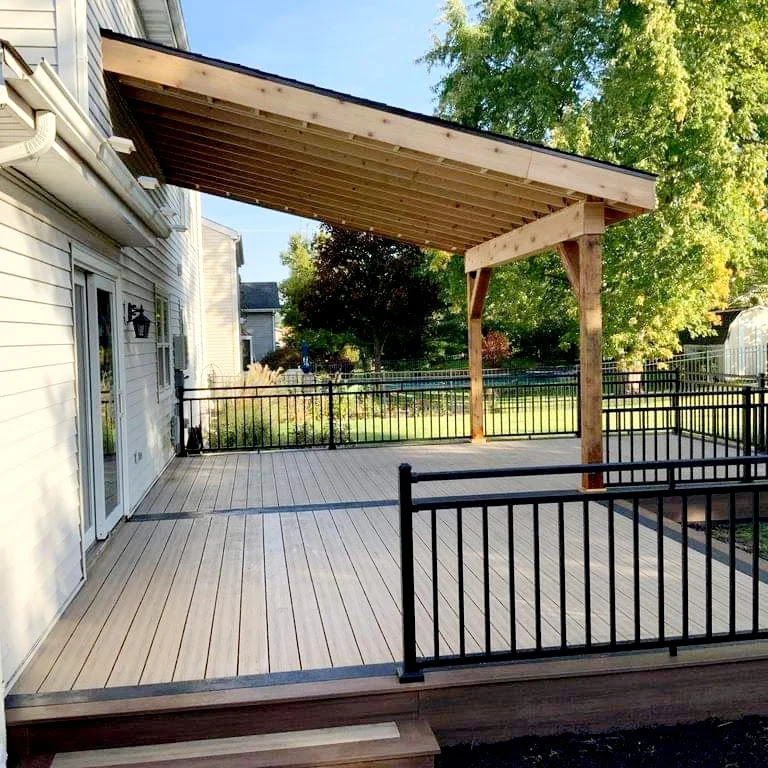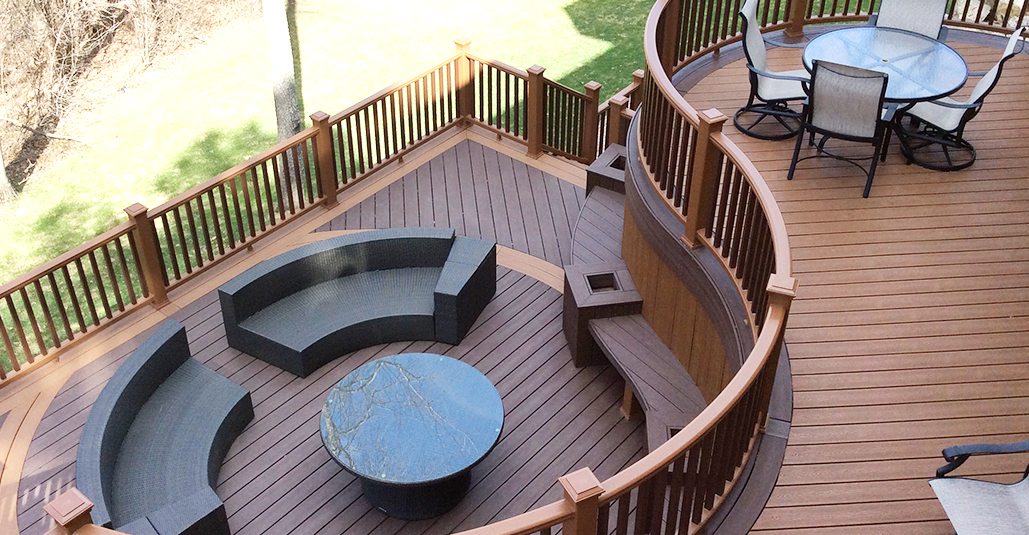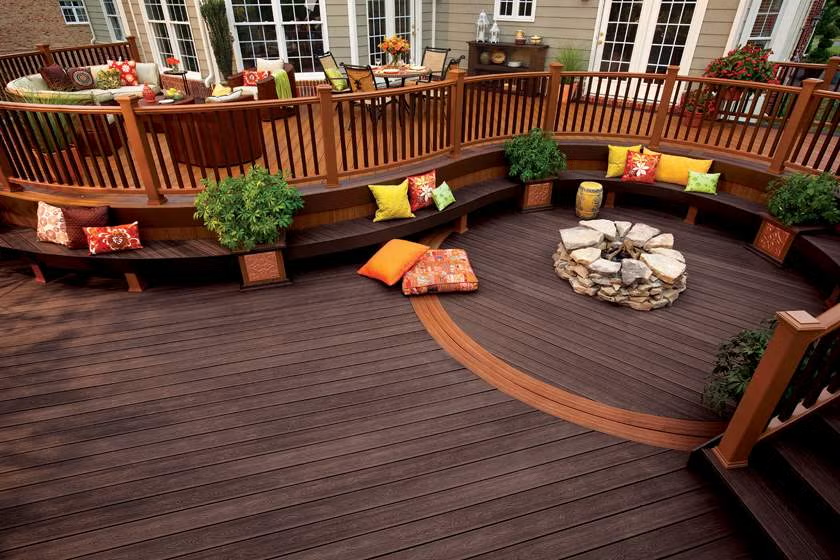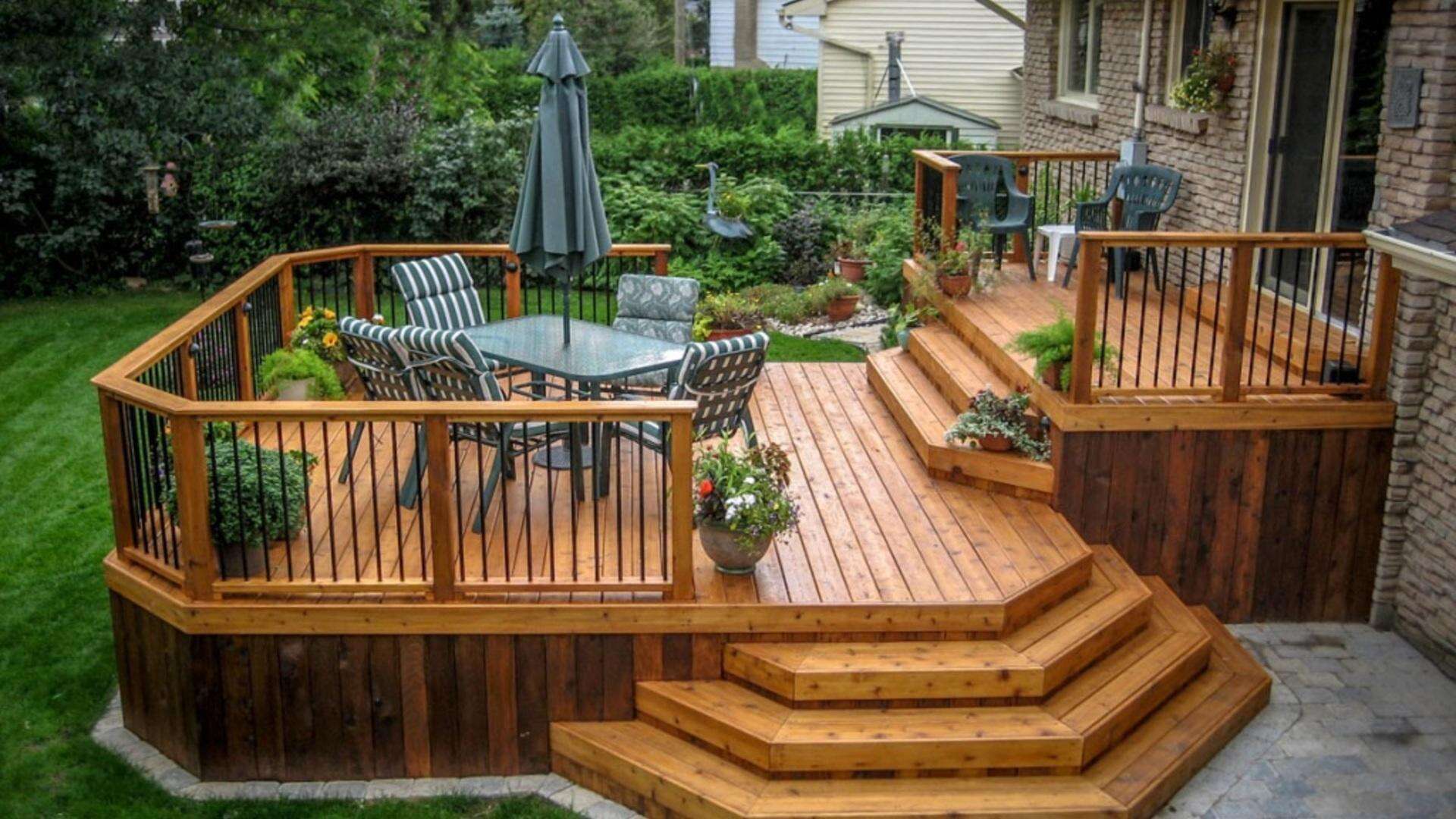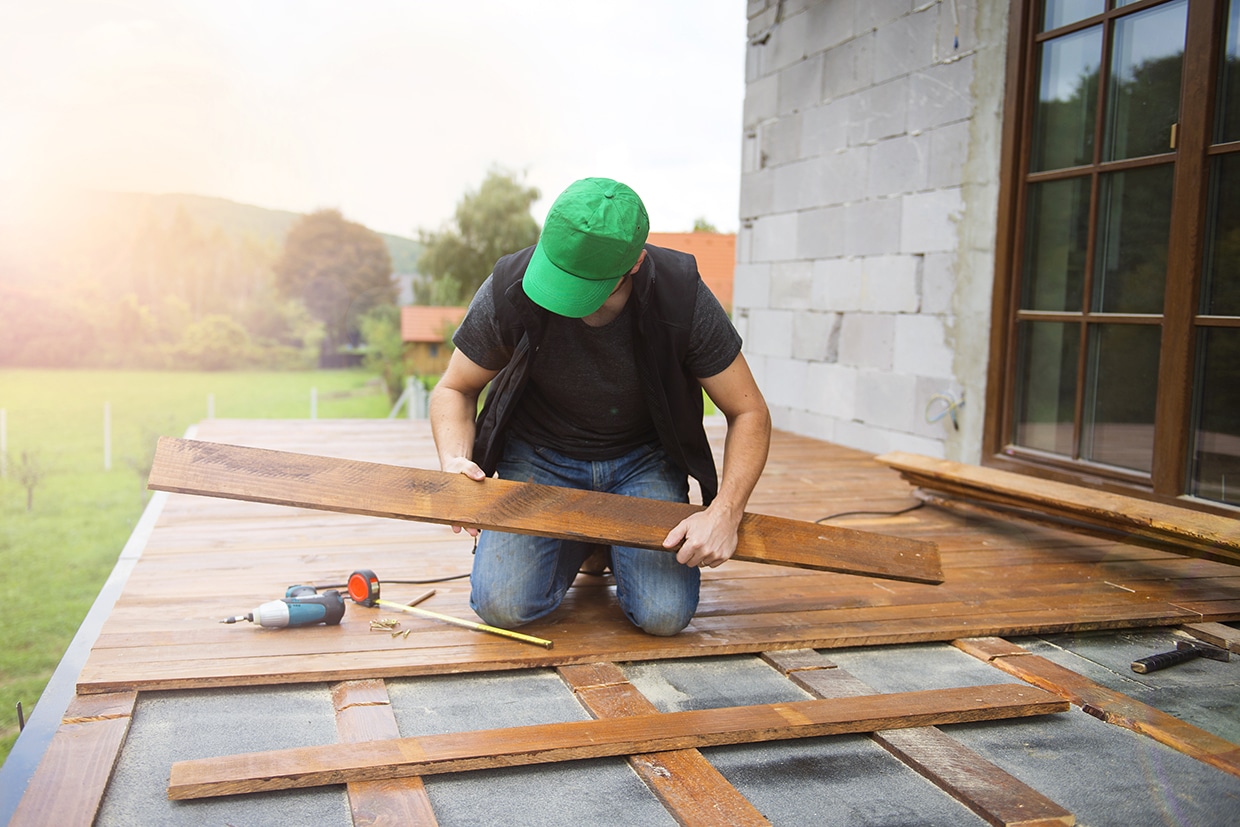How Much Does It Cost to Build Deck in Algonquin, IL?
Customers often have a lot of questions for contractors when they are thinking of adding a deck to their homes. One of the most common questions is, “how much will it cost?” It’s an excellent thing to ask and, of course, very necessary, but unfortunately, it’s hard to get a straightforward answer.
Why?
The cost of building anything can vary drastically from contractor to contractor and city to city. While it’s easy enough to Google the question, it’s unlikely that it will provide a helpful answer. Most of the prices that can be seen online are outdated or based on different materials or locations. Therefore, it’s impossible to truly have an idea of the cost of the project until a customer speaks directly to a contractor.
Even then, there are a wide variety of things that can impact their pricing. For that reason, homeowners in Algonquin, IL won’t be able to get a quote until they’ve provided more information on the size and design of their project. Keep reading to learn more about the factors that can impact the breakdown of a new deck build price.
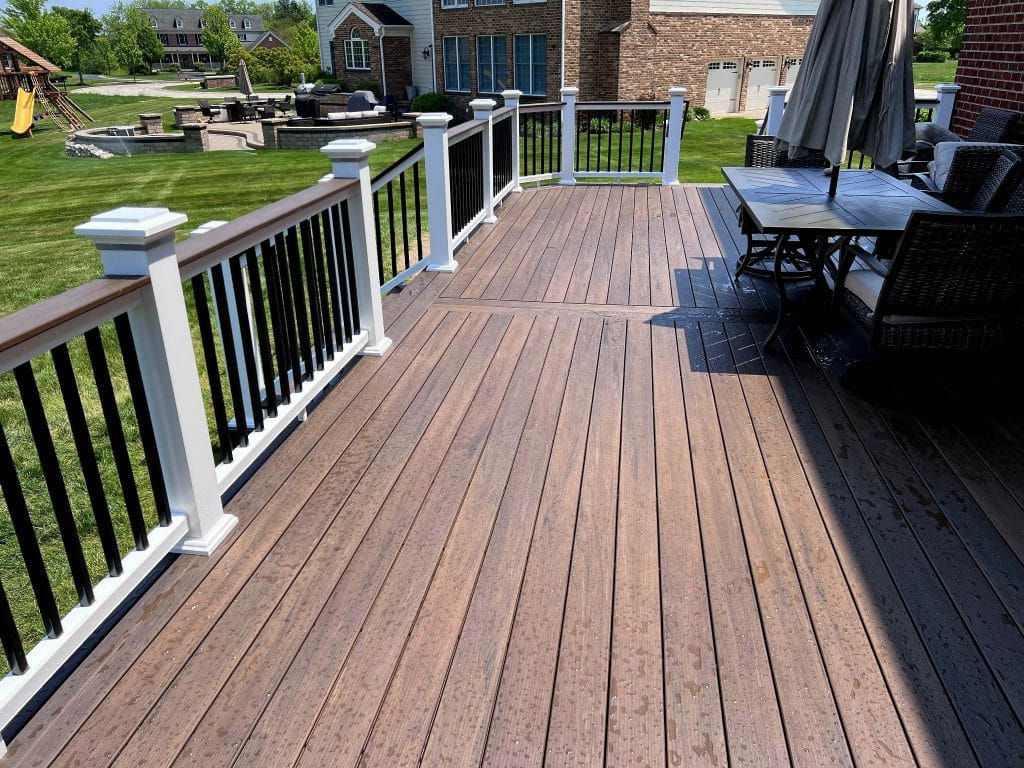
Factors Impacting the Cost of Building a New Deck
There are several different items that help determine the overall cost of building a new deck in Algonquin, IL. From the materials a homeowner chooses to the railing and stairs, the list goes on. However, the following are just some of the main factors that influence the pricing for new deck builds.
The Elevation of the Deck
Most people realize that the size of their deck is one of the larger factors in the overall cost. However, it’s about more than just the square footage that it takes up. The height of the deck is also factored into the size of the deck. The higher a deck is off the ground, the more it will cost.
This should come as no surprise, as building a taller deck requires more materials and labor.
It’s also important to note that different municipalities have different safety requirements and building codes. In general, a tall deck requires railing, so this is something that will also impact a deck build quote.
Railing and Stair Additions/Layouts
Even if railing isn’t added for safety, it is still one of those significant factors that impact the total cost of building a new deck. Along with that comes the added cost of stairs. In order to understand how much a deck addition will cost, a homeowner must know how many staircases they will add and their height—even the width of the individual stairs matters! For example, wide platform stairs will cost more than a standard staircase.
While it might seem like a small addition, there are circumstances where stairs and railing can nearly double the total cost. This is especially true for customers who want a walk-out deck staircase.
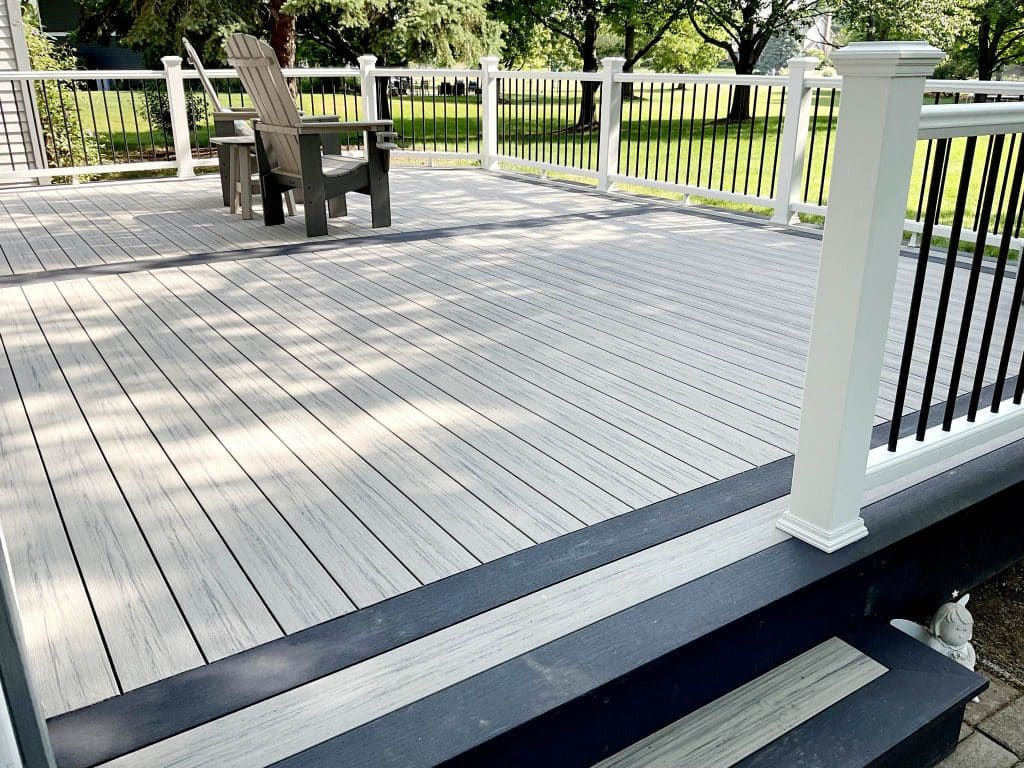
Choice of Decking Materials
The type of decking material used in a project is another huge factor impacting the cost. Fortunately, there are a wide variety of options, so customers can easily choose something that they love while still staying within budget. Wood, composite, and PVC are just a few of the more popular options that homeowners can choose from. From there, you can also pay more for different colors, styles, and designs. Manufacturers may even offer different quality products ranging from more affordable to higher-end alternatives.
It’s important to keep in mind the added cost after the new deck is built. Some materials require more maintenance than others, and the type of maintenance varies. For example, wood will require regular sanding, staining, and painting to keep it in optimal condition. Even though composite decking material might cost more upfront, it doesn’t require as much maintenance, so you won’t have as many extra expenses down the road.
Other Deck Options
While the previously mentioned items are some of the bigger influences in a deck’s price, there are many more where those came from. As customers add on other elements and design ideas, the price goes up. The following are just a few of the more popular additions that can significantly increase the cost:
- Pergolas and Other Coverings
- Built-in Lighting
- Privacy Screens
- Deck Skirting
- Additional Seating
Average Deck Building Costs
With those cost factors in mind, let’s look at some average price ranges for building a deck. Keep in mind these are very general estimates. Your actual costs may be higher or lower based on your specific project details and location.
– Basic pressure-treated wood deck (10×10 ft): $10,000 – $15,000
– Mid-range composite deck (12×16 ft): $15,000 – $25,000
– High-end hardwood deck (16×20 ft): $20,000 – $35,000+
For a more precise estimate based on your deck size, use the following average cost per square foot ranges:
– Pressure-treated wood: $25 – $35 per sq ft
– Composite decking: $75 – $110per sq ft
– Exotic hardwoods: $90 – $150+ per sq ft
In addition to the decking itself, you’ll need to budget for the supporting structure (posts, beams, joists, ledger), stairs, railings, and hardware. These items usually account for around 1/3 to 1/2 of the total deck cost.
Deck Costs Breakdown
To give you an idea of how the various deck building components impact the overall price, here’s a sample cost breakdown for a mid-range 12×16 ft composite deck:
– Decking and fasteners: $3,500
– Framing lumber and hardware: $1,500
– Concrete footings and piers: $500
– Stairs and railings: $3,000
– Labor: $7,000
Total: $15,500
As you can see, materials typically make up around 60-70% of the total cost, while labor accounts for the remaining 30-40%. If you have solid carpentry skills and feel confident taking on the labor yourself, you could save a significant chunk of money. However, deck building is very physically demanding work that requires specialized knowledge to ensure structural integrity and compliance with local building codes. For most homeowners, hiring a professional deck builder is well worth the added cost for peace of mind and a job done right.
Deck Materials Cost Comparison
One of the biggest decisions you’ll make when budgeting for your deck is what type of material to use for the decking boards. Here’s a more detailed breakdown of the advantages, disadvantages and costs of the most common decking options:
Pressure-Treated Wood
Pressure-treated lumber is the most economical choice for decking. The wood is chemically treated to resist rot, insects and moisture damage, making it a durable option for deck building.
Pros:
– Most affordable decking material
– Readily available
– Easy to work with using standard tools
– Can be stained or painted to customize the look
– Structurally stable if properly maintained
Cons:
– Requires regular cleaning, staining and sealing to prevent weathering
– Prone to warping, splintering and cracking over time
– Chemical treatment can leach into soil
– Limited color and aesthetic options
Composite Decking
Composite decking has become increasingly popular in recent years as a low-maintenance alternative to wood. Made from a blend of recycled plastic and wood fibers, composite decking is designed to mimic the look of natural wood without the upkeep.
Pros:
– Extremely durable and weather-resistant
– Won’t rot, splinter, warp or attract insects
– Minimal maintenance – no sanding, staining or sealing needed
– Wide variety of colors and grain patterns
– Often includes warranty from manufacturer
– Environmentally friendly use of recycled materials
Cons:
– Significantly more expensive than pressure-treated wood
– Darker colors may fade over time in direct sunlight
– Can’t be refinished like wood – repairs are more difficult
– Some products can look artificial or “plastic-y”
-Can be hot to the touch
Tropical Hardwoods
For the ultimate in durability and luxury, tropical hardwoods like Ipe, tigerwood, and mahogany are premium decking choices. These richly grained woods are naturally resistant to rot, insects and weather damage, making them ideal for decks.
Pros:
– Unmatched beauty with exotic colors and grain patterns
– Superior hardness and density – extremely scratch/dent resistant
– Excellent natural resistance to decay and insects
– Can last 30-50+ years with upkeep
– Increases home resale value
Cons:
– Most expensive decking option by far
– Difficult to work with – requires specialty tools
– Limited availability compared to PT wood and composites
– Requires regular oiling to keep pristine, otherwise will fade
– Very heavy and labor intensive to install
Additional Deck Building Costs To Consider
Beyond just the basic decking and structural components, there are several other potential costs to keep in mind as you budget for your deck project:
– Permits and Inspections: $100 – $1,000
Before starting any construction, you’ll need to check your local building codes and apply for the necessary permits. This usually involves submitting your deck plans for approval and paying a fee. Once the deck is complete, it will need to pass a final inspection as well.
– Site Preparation: $500 – $2,000
If your build site requires clearing, excavation, grading, or removing an old deck, this will add to your costs. Difficult terrain and limited access can also increase site prep expenses.
– Stairs and Railings: $2,000 – $15,000+
The larger and taller your deck, the more stairs and railings it will need for safe access and to meet code requirements. Opting for premium railing materials like aluminum, cable rail, or glass panels can add significantly to your costs compared to standard pressure-treated wood. Stairs are very labor invasive and can add quite a bit to your deck cost.
– Features and Amenities: $200 – $10,000+
Built-in seating, planters, pergolas, fire pits, outdoor kitchens – the sky’s the limit when it comes to adding extra features to your deck. Set aside 20-30% of your total budget for any special add-ons you can’t live without.
Tips for Saving Money on Deck Building
If you’re looking to build a deck on a budget, consider these cost-saving strategies:
- Keep the design simple. Avoid complex curves, angles and multiple levels. A basic rectangle or square deck will be the most affordable.
- Do some of the work yourself. If you have the skills and tools, you can save on labor costs by handling parts of the project like demolition, site prep, and cleanup. Leave the structural work to the pros though.
- Build in the off-season. Deck builders are busiest in the spring and summer, so you may get a better deal on labor if you wait until fall or winter for your project..
- Scale back the size. Do you really need a massive 1000 sq ft deck? Reducing the footprint of your deck is a surefire way to cut down on material and labor costs.
- Skip the extras. Focus your budget on building a sturdy, functional deck now, and save the built-in benches, planters and fancy railings for a future upgrade.
Contact Decked Out Builders to Learn More About the Cost of Building a Deck in Algonquin, IL
Homeowners can easily find out the cost of their new deck build when they contact Decked Out Builders. Their convenient online contact form is simple and easy to fill out, so they can get answers to all their questions about pricing. Decked Out Builders also gives Algonquin, IL customers the option to call to schedule a quote for their upcoming project. The contractors can be reached at (815) 900-5199.
https://www.google.com/maps?cid=2300364325239903716



